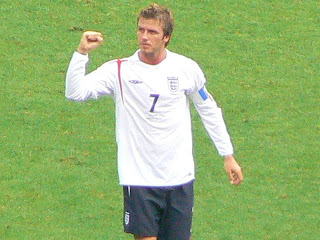The problems with grass-roots football in England are well documented and widely debated, as indeed are the potential solutions to the problem. The FA are keenly hoping that St. George's Park, so called to reflect a sense of national pride and optimism, can become a key piece of the puzzle. Critics of the English FA point to other English national teams in other sports, such as the in-form Rugby Union side, Ashes-winning Cricket team and various other British sporting individuals such as Lee Westwood, Chris Hoy and Graeme McDowell to name but three as key examples that make English football's perennial under achievement Internationally completely unacceptable. It is not a case that we are completely incapable of producing as many talented sports people as other countries, but rather, and perhaps more disappointingly, for years the set up of English football has been all wrong.
One key argument against the current way in which young people are introduced to football in England is the mentality of coaches, be they professional or amateur "Sunday Mini-soccer" managers. From a very young age, football in England is all about winning. The way young players, even as young as 6 and 7, are told to compete with each other is not conducive to them learning the technical skills of similar players in other countries, such as Italy or Spain, where competition is not as important as playing the game in the right way. Several high profile managers have noticed the difference in the mentality of players at the age of 10 and 11 in England to that of players from the rest of Europe.
This institutionalised competitiveness has other negative effects on grass roots football, for example meaning that games are played at a very high tempo and often resort to nothing more than being able to run fast, or kick the ball harder and further than everybody else. I know from my own personal experience of playing youth football that quick players are disproportionately valuable at this level of the game, scoring 30+ goals a season and quickly becoming noticed by other teams and the occasional scout. This attitude has not and will never serve English football well, as unfortunately players like Jack Wilshere, whose superb technique and skill on the ball have been an invaluable factor behind his meteoric rise to the England national team, are the exception to the rule and leave one wondering just how they are able to develop such skills in an environment of intense competition and blinkered focus on physicality.
David Beckham is a case in point of this phenomenon. Beckham, when first breaking through to Manchester United's first team, was criticised from certain corners for his lack of physical prowess, for the fact that he was not strong in the tackle, the fact that he was slow. Beckham subsequently went on to become England's most-capped outfield player, their captain for 6 years and is widely regarded as a hugely popular figure in British sport as a whole. If Beckham's coaches at the time had listened to the outside pressure, which thankfully they didn't, and had ignored the bigger picture then Beckham may have never had the chance to go on to the illustrious career he did.

There is a long list of players in England who are criticised (complaining about the "public enemy no.1 of the month" being one of the great joys of football, it seems), but so rarely are these players berated for their lack of a quality first touch, their lack of vision. Normally, football fans will complain that a player "doesn't want it" enough, or that they are not putting a shift in to the extent they would like. It is this attitude which allows hard-working, but ultimately average, players like Shefki Kuqi to forge lengthy careers in England while young players struggle to break through. It is no coincidence that Spain were able to win two consecutive major International tournaments, The European Championship and the World Cup, with a team who almost entirely were produced in environments of expression, beautiful football and a joy for the game, many coming through the ranks at F.C Barcelona's incredible La Masia. For St. George's Park to work, I believe that it will require a massive shift in the attitude of coaches, an altering of fan expectations of the qualities that a modern top footballer needs, and ultimately for the expansive and costly resources available to the young players that visit the centre to be used in the right way.
We cannot ignore the fact that many more young people want to play football than do tennis, cricket, rugby or golf, and that perhaps the players who choose these sports have greater access to better coaching, and consequently greater chance of success. It must also be acknowledged that physicality is an important factor in the sport, and at grass-roots level is a way in which potential can be gauged by coaches. What I would simply like to see is for technical ability, enjoyment for the game and mental attributes to become more important in grass-roots football in this country, rather than sheer physical ability being order of the day.
No comments:
Post a Comment